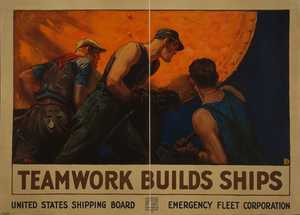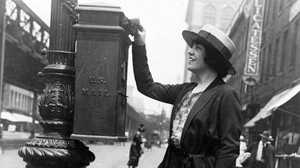Get a Sneak Peek of The Great War
Join American Experience for special preview screenings of the upcoming miniseries. Each event includes a screening of an excerpt from the film, followed by a panel discussion with special guests and the film’s directors.
All screenings are free — reserve your seats now!
Boston, MA
Tuesday, March 28 at 6 pm
John F. Kennedy Presidential Library & Museum
Learn more and reserve tickets: jfklibrary.org
Chicago, IL
Tuesday, March 28 at 6 pm
Pritzker Military Museum & Library
Learn more and reserve tickets: pritzkermilitary.org
Jacksonville, FL
Saturday, April 1 at 10:30 am
The Hyatt Regency Jacksonville Riverfront
Learn more: fsu.edu
Washington, DC
Monday, April 3 at 7 pm
The Newseum
Learn more and reserve tickets: thegreatwarindc.eventbrite.com
Kansas City, MO
Friday, April 7 at 6:30 pm
National WWI Museum and Memorial
Learn more and reserve tickets: theworldwar.org
ABOUT THE GREAT WAR
Premiering APRIL 10 at 9/8c on PBS stations nationwide
Drawing on the latest scholarship, including unpublished diaries, memoirs and letters, The Great War tells the rich and complex story of World War I through the voices of nurses, journalists, aviators and the American troops who came to be known as “doughboys.” The series explores the experiences of African-American and Latino soldiers, suffragists, Native-American “code talkers” and others whose participation in the war to “make the world safe for democracy” has been largely forgotten. The Great War also explores how a brilliant PR man bolstered support for the war in a country hesitant to put lives on the line for a foreign conflict; how President Woodrow Wilson steered the nation through almost three years of neutrality, only to reluctantly lead America into the bloodiest conflict the world had ever seen, thereby transforming the United States into a dominant player on the international stage; and how the ardent patriotism and determination to support America’s crusade for liberty abroad led to one of the most oppressive crackdowns on civil liberties at home in American history. It is also a story of little known heroism and sacrifice (including the deadliest battle in American history) that would leave more than 53,000 men dead on the battlefield and more than 60,000 dead from disease. American fatalities would come at a critical time in the war, but they would be dwarfed by a cataclysm of violence that would ultimately claim 15 million lives.







